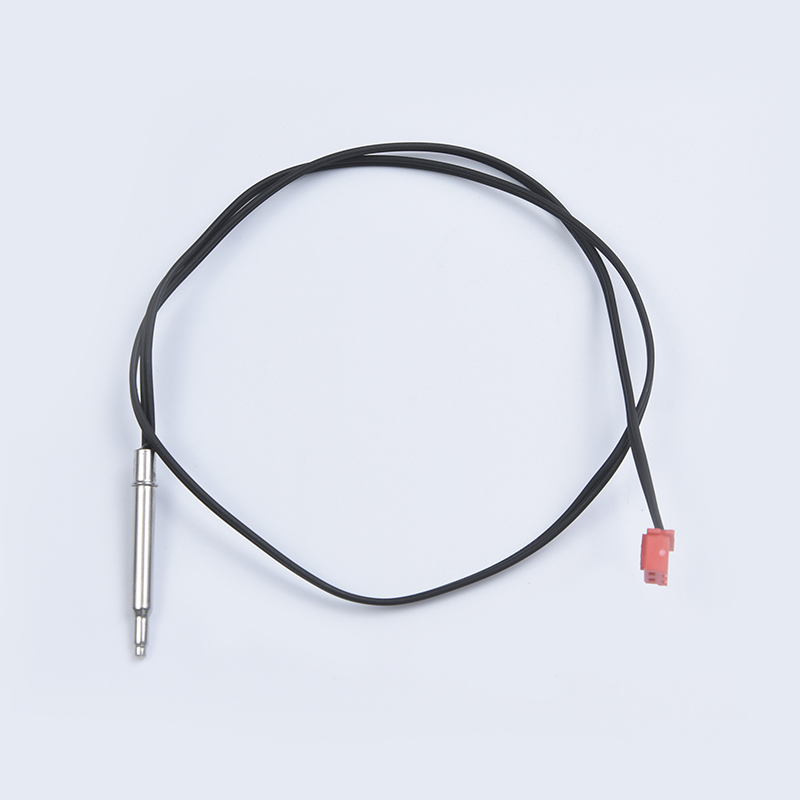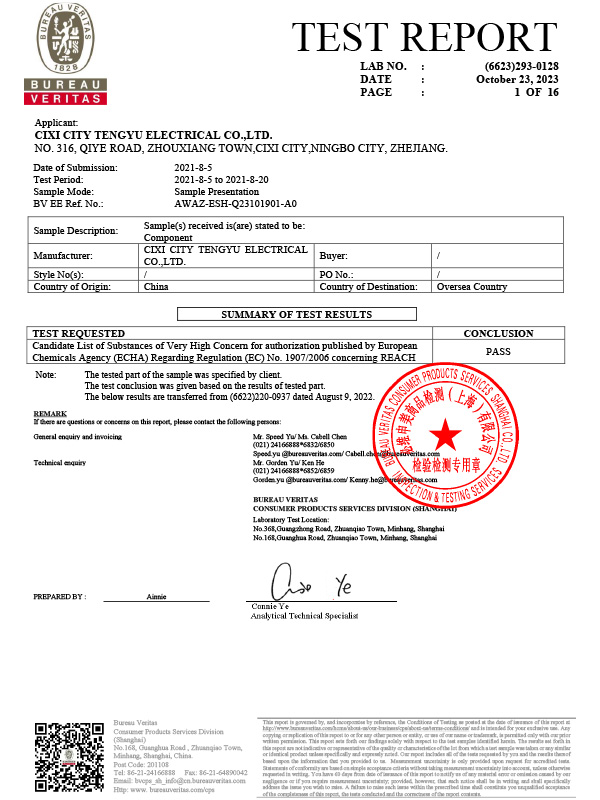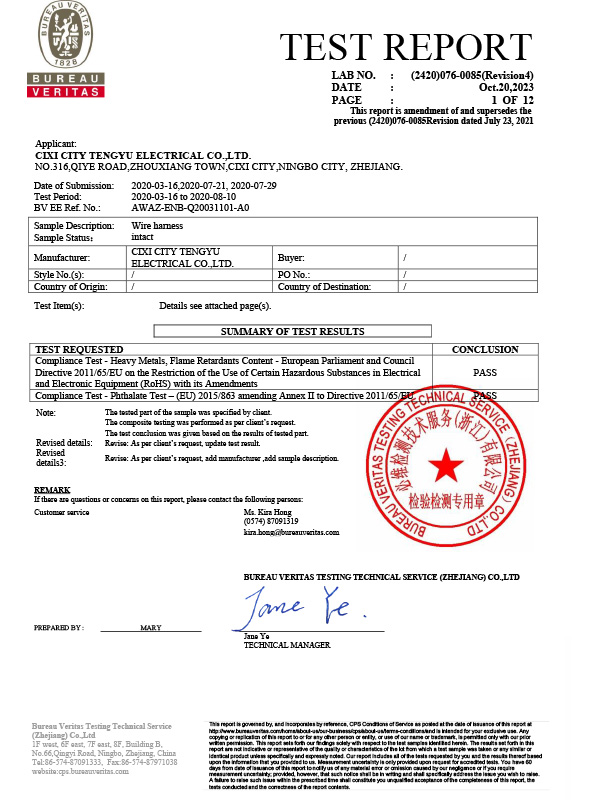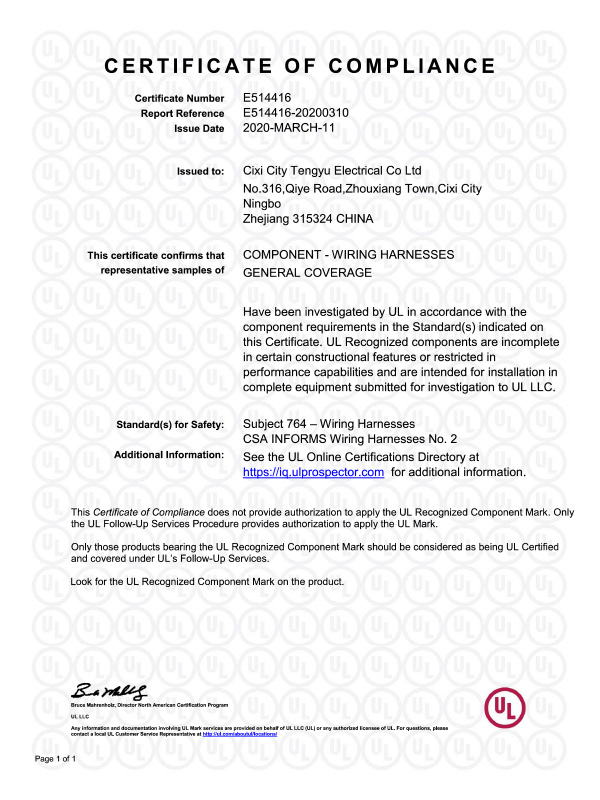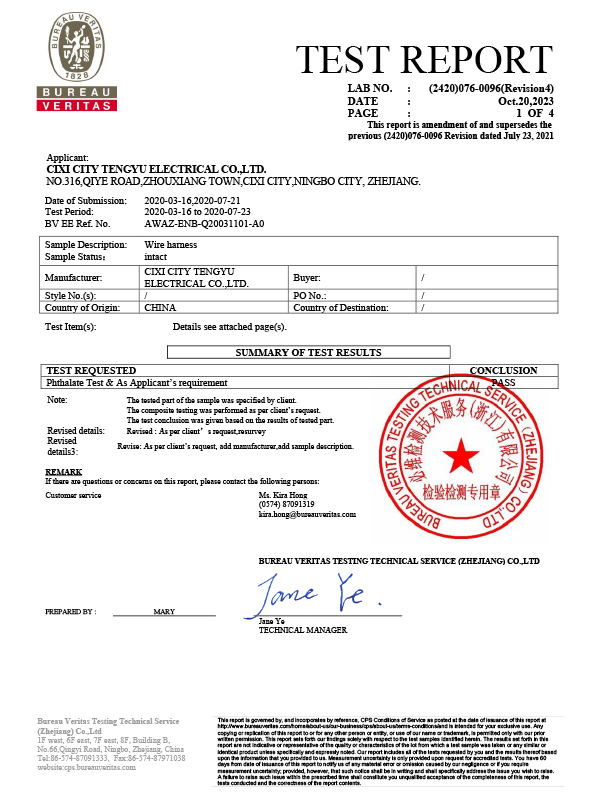How can an air conditioning NTC temperature sensor prevent overheating or overcooling?
Introduction to Air Conditioning NTC Temperature Sensors
An air conditioning NTC temperature sensor is a critical component in modern HVAC systems, responsible for monitoring temperature changes and providing feedback to the control unit. The sensor's core function is to prevent overheating or overcooling by detecting temperature variations and allowing the system to adjust its operation accordingly. Teng Yu Electrical Appliance, with more than twenty years of development, integrates advanced production technology and scientific management to ensure the manufacturing of NTC sensors that meet consistent performance standards. Their emphasis on research and development, production, quality management, and process control contributes to the reliability of sensors in both domestic and international markets.
Sensor Placement and System Integration
Proper placement of the NTC sensor within an air conditioning system is essential for accurate temperature detection. Sensors are typically located near evaporator coils, air outlets, or in the air intake path to measure temperature variations effectively. Incorrect positioning may lead to delayed response or inaccurate readings, potentially resulting in overheating or overcooling. Teng Yu Electrical Appliance addresses this by optimizing sensor geometry and placement in product design, ensuring that each sensor provides timely and precise feedback to the control system.
Accuracy and Calibration
The accuracy of an NTC temperature sensor directly impacts an air conditioner’s ability to maintain stable indoor conditions. Sensors with minimal tolerance deviations can detect small temperature fluctuations, allowing the system to adjust its cooling or heating output efficiently. Teng Yu Electrical Appliance employs advanced production technology and calibration processes to reduce measurement errors. Regular calibration during production ensures that sensors maintain consistent resistance characteristics, which enhances the system's ability to prevent extreme temperature variations.
Response Time and Temperature Control
The speed at which an NTC temperature sensor responds to temperature changes is crucial for maintaining safe and comfortable indoor environments. Fast response times enable the air conditioning system to react quickly to sudden temperature shifts, avoiding prolonged exposure to either high or low temperatures. Teng Yu Electrical Appliance incorporates software and hardware integration methods that optimize response time, ensuring that sensors provide immediate feedback to the control system and contribute to efficient temperature regulation.
Material Selection and Thermal Stability
Materials used in NTC temperature sensors influence their stability under high or low temperature conditions. Long-term exposure to extreme temperatures can cause degradation in sensor performance, including drift in resistance values. Teng Yu Electrical Appliance selects materials that resist thermal aging and chemical degradation, ensuring that the NTC sensors maintain consistent performance over extended operational periods. This material selection is part of a comprehensive approach combining design, production, and quality management to enhance sensor durability.
Environmental Factors Affecting Sensor Performance
Environmental conditions, such as humidity, airflow, and dust accumulation, can affect the accuracy and responsiveness of NTC sensors. In air conditioning systems, sensors may be exposed to moisture from condensation, varying air velocities, or particulate matter. Teng Yu Electrical Appliance mitigates these risks by using protective coatings and encapsulation techniques for sensors, maintaining reliable performance under diverse operational environments. These measures reduce the likelihood of overheating or overcooling due to inaccurate temperature readings.
Software Compensation and System Optimization
Modern air conditioning systems often integrate software algorithms to compensate for minor sensor deviations or environmental influences. These algorithms adjust control signals based on historical data, sensor feedback, and predicted temperature trends. Teng Yu Electrical Appliance combines high-quality NTC sensors with intelligent software integration, ensuring that the air conditioning system maintains balanced indoor temperatures while avoiding unnecessary strain on components. This coordination between hardware and software is critical for preventing overheating or overcooling.
Maintenance Practices to Ensure Sensor Reliability
Regular maintenance of NTC sensors is necessary to preserve their ability to prevent extreme temperature conditions. Cleaning sensors, inspecting wiring, and verifying sensor response can extend operational life and maintain accuracy. Teng Yu Electrical Appliance emphasizes proper usage guidelines and service instructions for end-users and technicians, ensuring that sensors continue to function effectively over time. Routine maintenance supports system efficiency and helps maintain safe operating conditions.
Durability under Continuous Operation
Air conditioning systems often operate continuously for extended periods, particularly in commercial environments. NTC temperature sensors must withstand repeated thermal cycles without significant degradation. Teng Yu Electrical Appliance addresses this requirement through rigorous testing protocols, evaluating sensor performance under long-term high-frequency operation. The company’s focus on process control, material quality, and production consistency ensures that sensors maintain reliable function, reducing the risk of system malfunction due to overheating or overcooling.
Quality Control and Production Standards
Teng Yu Electrical Appliance maintains a scientific management system and strict quality control measures throughout the production process of NTC sensors. Each batch of sensors undergoes resistance verification, thermal cycling tests, and environmental stress assessments to ensure compliance with performance standards. These measures are crucial for guaranteeing that sensors can provide accurate temperature readings and protect air conditioning systems from extreme thermal conditions.
Can an air conditioning NTC temperature sensor maintain stability during long-term high-frequency operation?
High-Frequency Operation and Temperature Sensor Stability
Air conditioning systems, particularly in commercial or industrial settings, often operate in cycles that require frequent temperature monitoring. During high-frequency operation, the sensor must respond rapidly to temperature fluctuations without drifting or losing accuracy. Teng Yu Electrical’s NTC sensors utilize precision materials and advanced production techniques to maintain consistent resistance values over repeated thermal cycles. This reduces the risk of erroneous readings that could lead to overcooling or overheating.
Material Selection and Sensor Performance
The performance of NTC sensors under prolonged high-frequency operation depends heavily on the materials used in manufacturing. Teng Yu Electrical selects thermistors with stable thermoresistive properties and minimal susceptibility to aging effects. By ensuring the thermistor materials maintain their resistance characteristics even under repeated thermal stress, the sensors can sustain their accuracy over long periods, supporting the air conditioning system’s need for reliable temperature monitoring.
Integration with Air Conditioning Control Systems
NTC sensors are integrated into the control circuitry of air conditioning units. When a sensor detects a change in temperature, it sends corresponding electrical signals to the controller, which adjusts the compressor, fan speed, or cooling elements accordingly. Teng Yu Electrical designs sensors that are compatible with modern control systems, supporting real-time response without lag. This integration ensures that even during continuous high-frequency operation, the system maintains stable temperature regulation without excessive wear on mechanical components.
Quality Assurance and Production Process
Teng Yu Electrical’s commitment to strict production process control plays a crucial role in long-term stability. Each sensor undergoes rigorous testing for resistance accuracy, response time, and thermal stability before leaving the factory. By combining advanced production equipment with a scientific management system, Teng Yu Electrical ensures that the NTC sensors consistently meet performance standards across multiple production batches.
Environmental and Operational Factors
Long-term high-frequency operation can expose NTC sensors to environmental factors such as humidity, vibration, and electrical interference. Sensors from Teng Yu Electrical are designed to resist such influences through encapsulation, protective coatings, and precise assembly techniques. This design approach reduces the likelihood of performance degradation, allowing sensors to maintain stability in diverse operating environments.
Monitoring and Diagnostic Capabilities
Modern air conditioning systems often include diagnostic features that continuously monitor sensor performance. If an NTC sensor begins to drift or show inconsistent readings, the control system can issue alerts or adjust operational parameters to compensate. Teng Yu Electrical provides sensors with predictable behavior under high-frequency cycles, which simplifies system-level diagnostics and reduces the need for frequent manual inspection.
Comparative Analysis of Sensor Performance
| Sensor Attribute |
Standard NTC Sensor |
Teng Yu Electrical NTC Sensor |
Benefit in High-Frequency Operation |
| Thermal Response Time |
Medium |
Fast |
Maintains accurate readings during rapid temperature changes |
| Resistance Stability |
Moderate |
High |
Reduces risk of signal drift over long-term operation |
| Environmental Resistance |
Basic |
Enhanced |
Performs reliably in humid or vibrating conditions |
| Production Consistency |
Variable |
Strictly controlled |
Ensures uniform quality across units and batches |
Longevity and Reliability Considerations
For air conditioning systems running continuously or in high-demand settings, the longevity of NTC sensors is critical. By using high-quality thermistor materials, precise assembly, and comprehensive testing, Teng Yu Electrical ensures that their sensors can endure repeated thermal cycles over extended periods. This reliability supports long-term system stability and reduces maintenance frequency.




 中文简体
中文简体